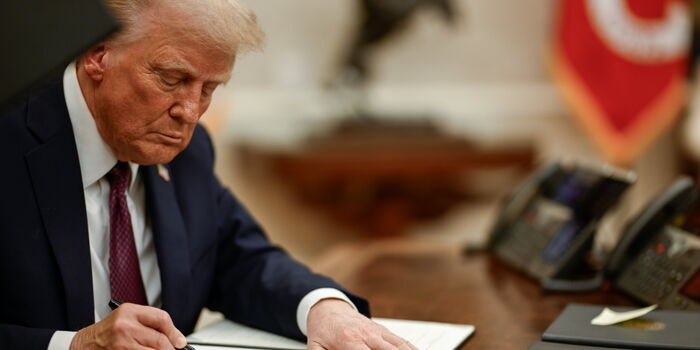The National Empowerment Network of People Living with HIV/AIDS in Kenya (NEPHAK) has officially written to the U.S. government, urging an extension of the 90-day waiver for the President’s Emergency Plan for AIDS Relief (PEPFAR). The organization stressed that an extended waiver would allow for a well-structured and responsible transition plan to ensure continued support for beneficiary countries.
In a statement issued on Sunday, February 16, NEPHAK appealed to U.S. authorities to reconsider their approach while realigning financial aid.
They emphasized the need for an extended waiver to enable affected countries to collaborate on a strategic transition that safeguards healthcare services.
“As the United States reassesses its international aid strategy, we urge an expansion of the limited waiver, allowing a well-planned transition period.
This would ensure that beneficiary nations have sufficient time to integrate necessary changes without disrupting essential healthcare services,” the communique stated.
The organization further recommended that the waiver should incorporate a robust accountability system.
This mechanism would empower recipients of care to actively participate in evaluating the services provided, ensuring quality and efficiency.
Impact of the USAID Freeze on Kenya
One of the first executive actions taken by President Trump after assuming office was a 90-day freeze on funds allocated through the United States Agency for International Development (USAID).
This decision had a significant impact on numerous aid-dependent nations, including Kenya. The abrupt funding halt led to the suspension of 54,000 healthcare workers involved in HIV/AIDS programs.
Fortunately, earlier this month, the U.S. government introduced a temporary waiver, allowing PEPFAR-funded workers to resume operations.
The waiver reinstated crucial services, including HIV treatment, care for people living with HIV, and the prevention of mother-to-child transmission.
However, NEPHAK remains concerned about the long-term stability of these programs and is now calling on both national and county governments in Kenya to step in and absorb the affected healthcare workers.
This move, they argue, would strengthen the country’s healthcare workforce and prevent disruptions in life-saving services.
“Both county and national governments should allocate necessary resources and implement a phased plan to integrate healthcare workers who lost their jobs due to the U.S. funding freeze,” the organization urged.
Call for Increased Domestic Support for HIV and TB Services
NEPHAK also called on the Kenyan government to use part of the current supplementary budget to secure essential antiretroviral (ARV) and tuberculosis (TB) medications.
They emphasized the importance of ensuring a steady supply of these life-saving drugs for all eligible patients.
“Resources must be allocated to ensure the uninterrupted availability of medicines and supplies needed for HIV and TB treatment.
A predictable and sustainable distribution system is critical to support the multi-month dispensing of ARVs in line with the Differentiated Service Delivery (DSD) strategy,” NEPHAK noted.
The organization also recommended that HIV and TB treatment be incorporated into Kenya’s Social Health Insurance Fund (SHIF).
They further proposed that individuals living with HIV, alongside those suffering from non-communicable diseases, be prioritized under the Critical and Chronic Illnesses Fund to ensure their continued access to healthcare.
County Governments Urged to Take Action
NEPHAK stressed the need for county governments to increase funding for HIV, TB, and general health services. They called for stronger collaboration between counties, the Ministry of Health, and other HIV-focused organizations.
Additionally, they urged local authorities to invest in training programs for healthcare workers, equipping them with the necessary skills to provide comprehensive HIV-related care while upholding human rights in service delivery.
As concerns over the long-term effects of the USAID funding freeze persist, NEPHAK’s appeal highlights the urgent need for both international support and domestic intervention to safeguard Kenya’s public health system.
Join Gen z and millennials TaskForce official 2025 WhatsApp Channel To Stay Updated On time the ongoing situation https://whatsapp.com/channel/0029VaWT5gSGufImU8R0DO30


